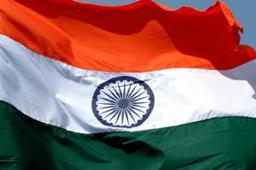 Indian CEOs already have most of the skills to take on the world.
Indian CEOs already have most of the skills to take on the world.
What is necessary is the vision, intensity and flexibility to work in different situations and economies.
This was the general view among the top leaders of several companies at the session on 'The Rise of the Indian CEO' at the Indian Economic Summit on Monday.
Terming the emotional quotient of Indian CEOs as one of their biggest assets, Venkatesh Valluri, chairman and president of Ingersoll Rand India, said: "Our CEOs work in the most complex situations and surroundings.
"I believe that if an Indian can lead a $100 million business in India, they can easily handle a $2 billion business abroad." Valluri added that social engagement was a distinct quality of Indian CEOs, apart from the profit motive.
Citing an instance from his company, Harpreet Duggal, senior vice president and business leader, India to India at Genpact, said that in the initial stages Genpact was not even recognised in the IT industry.
What was particularly needed at that point was tenacity to drive the company, which was displayed by the leaders.
Different speakers described varying but distinctive qualities of Indian CEOs during the session. Vineet Agarwal, Joint managing director of Transport Corporation of India, explained that the system that prevailed in India has proven Indians in a different light.
"We worked without advanced technology in a world where there was only one television channel and still managed a decent life," said Agarwal.
He also stated that India had the second largest number of CEOs after the US in Fortune's list, due to the CEOs' ability to work with constrained resources in multicultural
Added to this, said Phanindra Sama, CEO of Pilani Soft Labs, was that entrepreneurship was booming in India unlike most nations in South East Asia, which was leading most of them to expand their business across the world.
The session also brought out contradictory viewpoints on the leadership abilities of Indian CEOs. While all the panellists said that there was no doubt about the leadership skills of Indian CEOs, some of them believed that there were still a lot of challenges to be faced by them.
"Indian CEOs devote 80 per cent of time and effort to managing the environment and only 20 per cent on actually doing business.
"India is still in orbit one. If we are going to work at this pace, would the enterprise be able to move to the next orbit, and even if it does, would it able to transform itself to become truly global?" asked Joseph Massey, managing director and CEO, MCX Stock Exchange.
Alok Kshirsagar, director, McKinsey and Company, further said that in most organisations, there was a small concentration of leaders at the top.
According to him, more and more leaders were needed in Indian businesses, rather than just the usual two or three people. "We don't need just a few shining stars in business.
"Scaling up of business and value creation plus visibility for other leaders is necessary," he said.
The panelists were of the view that though multiculturalism was ingrained in Indian CEOs, they needed to learn to work in globalised situations.
There was a lot to learn from the foreign peers too, said some of the panellists.
"Being able to stay the course in adverse situations and being persistent are some of the qualities of global CEOs, which their Indian counterparts can easily adopt," said Valluri.







 © 2025
© 2025